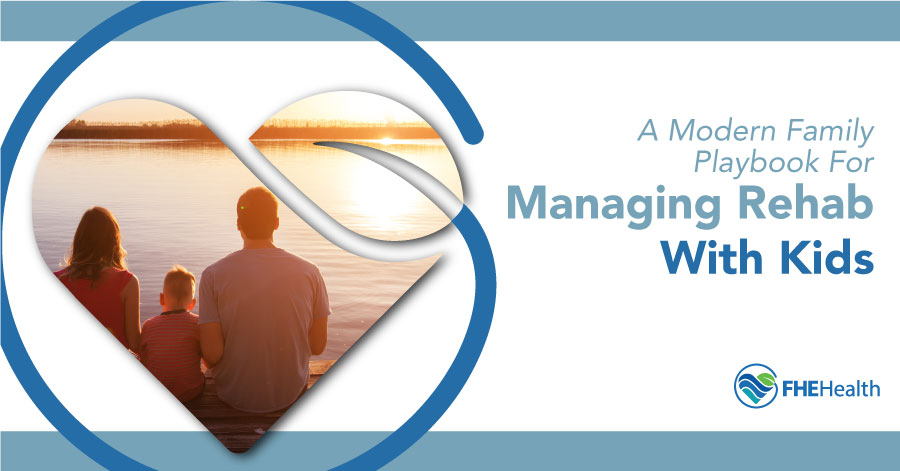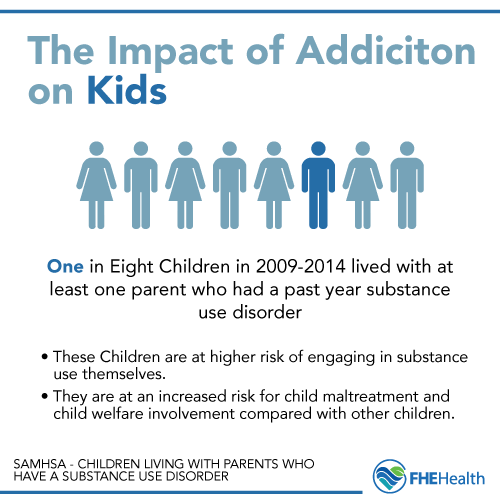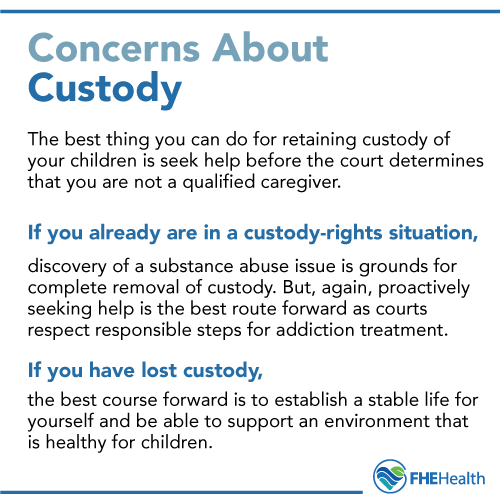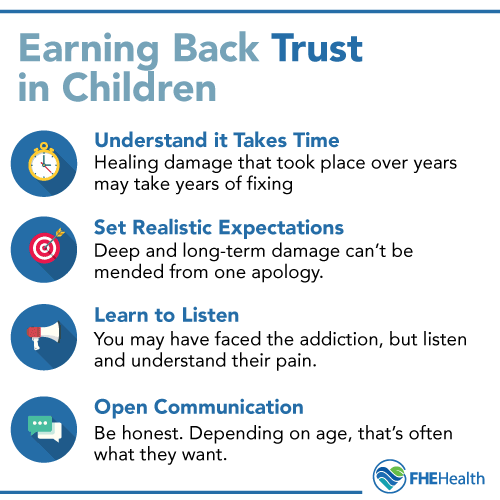
According to the Substance Abuse and Mental Health Services Administration, about one in 35 children in 2014 lived with at least one parent who had an illicit drug use disorder, and one in 10 children lived with at least one parent with an alcohol abuse disorder. Substance addiction is a disease that affects the individual and the entire family, including siblings, parents, grandparents, and children. If you have made the decision to get help but are worried about what would happen to your children, here are some things to think about when you seek drug rehab with kids.
Committing to Rehab
 Whether you are a single parent with substance addiction and caring for your children on your own or you’re married and want to seek help for an addiction, getting drug rehab with kids is one of the single most important steps you can take for your family.
Whether you are a single parent with substance addiction and caring for your children on your own or you’re married and want to seek help for an addiction, getting drug rehab with kids is one of the single most important steps you can take for your family.
Mothers and fathers may make excuses to avoid rehab out of fear of what will happen to their children once they are in treatment, but what many don’t realize is some treatment plans offer therapy and rehabilitation alongside childcare. Also, with a solid support network, it’s possible to seek treatment while the children are being cared for by family and friends.
While inpatient treatment is often seen as the best choice because it provides round-the-clock medical monitoring while you recover, outpatient programs make it easier to return home to your children and loved ones at night after spending the daytime in a treatment facility. Regardless of which program you choose, it’s important to focus less on why treatment may not work and focus more on getting better.
Talking About Your Drug Addiction
Once you’ve made the decision to stop abusing drugs and/or alcohol, you’ll want to sit down and tell your children you are going to rehab and prepare them for your absence. Older children are more likely to understand than younger ones, so it’s important to explain the situation in age-appropriate terms and create a plan of action for the time you’re away.
There’s no right way to discuss rehabilitation or prepare your kids when you go to rehab. The way you tell them will depend a lot on their age, their developmental state and how they’ve been impacted in the past by your substance abuse. First, be open and honest about the addiction. Tell them where you are going and why. Explain that substance addiction is a disease and that it requires professional help for successful treatment outcomes. Other tips for communicating include:
- Study information on what treatment you’ll be receiving. The more you know, the easier it will be to answer questions.
- Encourage questions. Allow your child time to ask questions and to show their emotions freely. Make sure you validate the feelings they have about you, your addiction and the family.
- Accept fault. Make sure your child knows nothing he did caused the situation. Assume complete blame for your condition and the fact that you need help.
- Provide support. Let your child know it’s ok for them to be upset and it’s ok to ask for help from others throughout the situation.
Concerns About Custody Rights
 Substance addiction can cause the loss of visitation, custody and even parental rights in severe cases. However, a number of conditions come into play regarding the situation. This includes the types of drugs used by the parent and how long the addiction has been going on for.
Substance addiction can cause the loss of visitation, custody and even parental rights in severe cases. However, a number of conditions come into play regarding the situation. This includes the types of drugs used by the parent and how long the addiction has been going on for.
Immediately upon finding out a parent abuses drugs or alcohol, the court suspends visitation or custody. Typically, when the parents are divorced or separated, the children may live with the non-abusing parents or other family members. In some cases, parents may receive supervised visitation if they agree to immediate substance abuse treatment and can demonstrate a true desire for rehabilitation. Unsupervised visits are usually not granted until the parent can demonstrate sustained sobriety.
In most cases, the courts will try to reunite the parent and child together once the treatment plan has been completed. Once this happens, if a parent begins abusing again, parental rights are typically terminated.
While it may be difficult to choose a path of rehabilitation, it’s much better to seek help and receive leniency from the courts rather than continue to use and risk losing your children for good. It’s important to trust family members to care for your children while you take the necessary steps to get better.
Earning Back Trust
Repairing broken relationships after recovery can be tough, especially after you’ve broken an individual’s trust. In some cases, getting loved ones to trust you is one of the most difficult aspects of recovery.
Understand Trust Takes Time
This is especially true if you’ve had a drug and alcohol addiction for many years. Understand it will take time to prove that you are in recovery and won’t give in to temptations.
Set Realistic Expectations for Yourself
Know that family members won’t automatically trust you when you get home. During your addiction, there were probably a number of issues that can’t be resolved immediately, even if you continue to apologize for your actions. However, an apology can go a long way towards forgiveness.
Learn to Talk to Others
Make sure you spend just as much time listening to those you’ve hurt as you do the talking. Acknowledge their feelings and make no excuses for your past behaviors.
Talk to Your Children
Very young children may not realize their parents are acting any differently than when they left. Just like with adults, older children may take longer to forgive, and it may take time for them to realize the change is permanent and the parent will keep their word in regards to quitting the addictive behaviors.
Getting Kids Back After Rehab
 The court system will determine your rights as a parent when they discover you suffer from drug addiction. In cases where the parents have shared custody, the parent without a drug problem may receive sole custody until the parent with the addiction problem proves they have sought help.
The court system will determine your rights as a parent when they discover you suffer from drug addiction. In cases where the parents have shared custody, the parent without a drug problem may receive sole custody until the parent with the addiction problem proves they have sought help.
To help get your children back, it’s important to prove to the court you’ve completed treatment. This takes place during a court hearing. You may also be asked to pass one or more drug tests to ensure the courts you are completely sober. The Department of Children and Family services will also plan a visit to your home to see if your addiction has been remedied. This evaluation is a good indicator of whether you will regain custody or not.
For more information on getting help when you want to recover from an addiction, contact FHE Health 24/7 at (833) 596-3502. Our friendly team can answer any questions you might have and get you on the path towards recovery.






